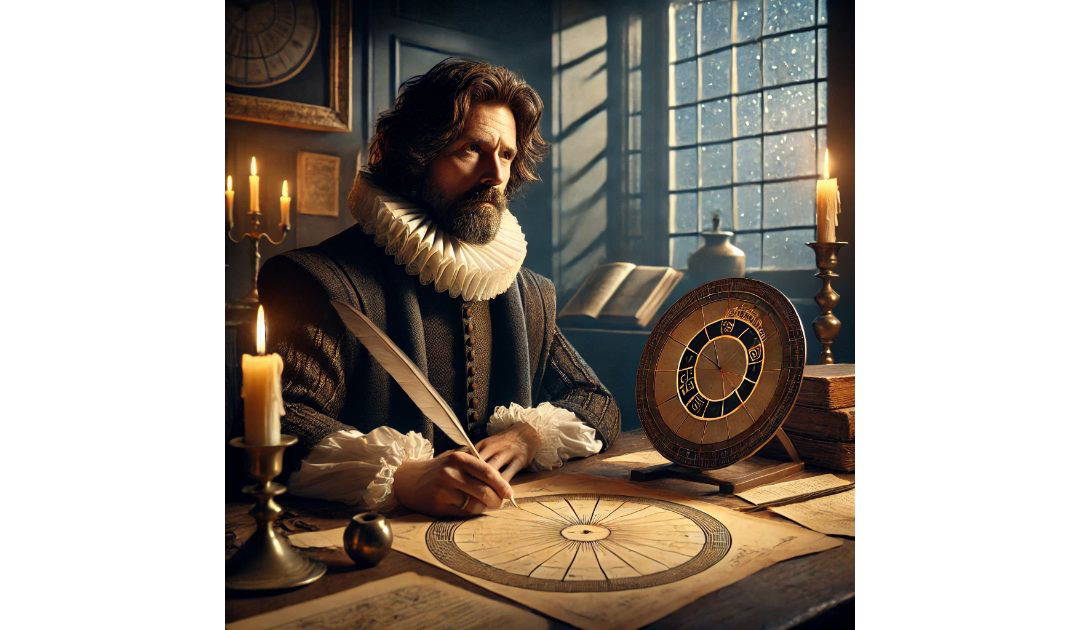I posted recently about using AI to generate horoscopes for use in my fifth novel of the Sir Anthony Standen Adventures, The Favourite Murder. I have been writing a scene today where Anthony is meeting with Jean-Baptiste Morin (1583-1656) to have is horoscope done. Morin was a prominent French mathematician, astrologer, and astronomer who made significant contributions to the fields of astronomy and astrology in the 17th century. Born in Villefranche-sur-Saône, France, Morin’s work spanned various disciplines, including medicine and philosophy, but he is most well-known for his advancements in astrology and his influence on the scientific thought of his time.
Morin studied medicine at the University of Avignon and later developed a keen interest in astrology. He believed astrology to be a legitimate science, rooted in celestial phenomena, and worked extensively to bridge the gap between astrology and emerging scientific methods. His most famous work, Astrologia Gallica (1661), is a comprehensive treatise that sought to formalize astrology by grounding it in astronomical principles and mathematical rigor.
Morin’s contributions to astronomy include his defense of geocentrism, a view that placed the Earth at the center of the universe, in opposition to the growing acceptance of heliocentrism, as advocated by Copernicus and Galileo. In my books, Sir Anthony Standen knew Galileo from Fire and Earth, so this was a useful place to add some backstory. Despite Morin’s controversial stance, he made valuable contributions to the study of planetary motion and the development of ephemerides, tables that track the positions of celestial bodies.
One of Morin’s lasting legacies was his development of a system for interpreting horoscopes, emphasizing the importance of the “houses” in astrology, which represent different areas of life. His methods, known as Morin’s System of Houses, are still studied by astrologers today.Though his belief in astrology contrasts with modern scientific views, Jean-Baptiste Morin’s work reflects the rich intellectual landscape of his era, where astrology and astronomy were deeply intertwined, influencing both mystical thought and scientific inquiry.

